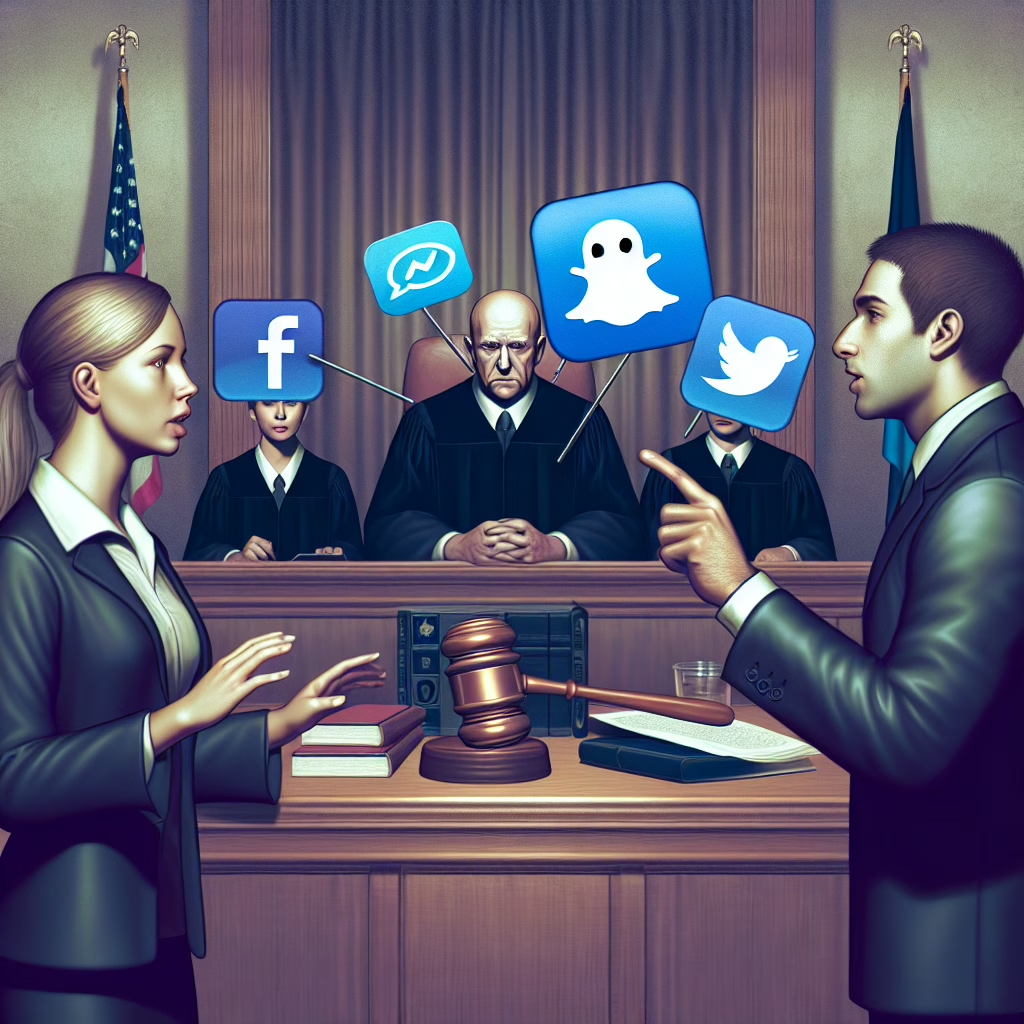Welcome to the thrilling world of antitrust trials, where corporate giants duel in a courtroom spectacle that could rival any blockbuster movie. In this particular episode, we have Meta strutting onto the stage, ready to defend its turf against the FTC, with TikTok and Snap watching from the sidelines, popcorn in hand. In this blog post, we’ll dive into the nuances of this trial, highlighting how it reshapes our understanding of market definitions and competition in 2025.
Meta vs. FTC: A Clash of Titans
The Federal Trade Commission (FTC) has decided it’s time to put Meta under the microscope. The agency is challenging Meta’s acquisitions and practices, arguing that they stifle competition in the social media arena. You see, the FTC believes that Meta’s strategies have turned it into a digital octopus, extending its tentacles over platforms like Instagram and WhatsApp—leaving little room for newcomers like MeWe or even TikTok to thrive.
But let’s not count Meta out just yet! The company is armed with a legal team that could rival an Avengers lineup. They argue that their acquisitions have not harmed competition but rather enhanced it by creating better user experiences. After all, who doesn’t love a good meme shared across multiple platforms? Meta contends that its vast resources fuel innovation, ultimately benefiting users.
Defining the Market: A Game of Tag
At the heart of this trial lies a critical question: what exactly defines the market? Is it just about social media, or does it encompass a broader digital entertainment landscape? The FTC insists on a narrow definition—essentially narrowing down the field to platforms like Facebook, Instagram, TikTok, and Snapchat. On the other hand, Meta advocates for a more expansive view, arguing that users might hop from one platform to another based on their whims (or what’s trending on TikTok).
This debate isn’t just semantics; it’s pivotal for determining who gets to play in the digital sandbox. If the court sides with the FTC’s definition, we could see stricter regulations curbing Meta’s influence. Conversely, if Meta prevails, it could mean even more control for them over our social media experiences—cue ominous music! Consider how such a verdict could affect innovation in app development across the industry.
The Potential Impact on TikTok and Snap
Now, let’s talk about our favorite short-video app: TikTok. As it stands, TikTok has become a powerhouse in the social media realm—bringing joy and sometimes cringe-worthy dance challenges into our lives. However, if Meta faces increased restrictions due to FTC pressure, it might inadvertently give TikTok more breathing room to flourish without being overshadowed by Meta’s expansive reach.
Snapchat too has its eyes glued to this trial. With its innovative filters and ephemeral content, Snapchat has carved out a niche that appeals especially to younger audiences. A favorable outcome for Meta could mean tougher competition for both TikTok and Snap as they scramble to keep users engaged while dodging potential algorithmic changes coming from their biggest competitor.
Lessons from the Legal Battlefield
This antitrust trial serves as a fascinating case study in how market dynamics can shift based on corporate strategies and regulatory actions. For budding entrepreneurs looking to make their mark in social media or tech startups eyeing expansion into these territories, there are vital lessons here:
- Stay Adaptable: The digital landscape is ever-changing; being nimble can help you pivot quickly when competitors or regulations throw curveballs your way.
- Understand Your Market: Knowing your audience is crucial. While you might think your app is revolutionary, if you can’t define your market correctly (like Meta is trying to do), you might find yourself in hot water.
- Regulatory Awareness: Keep an eye on what regulators are doing! Understanding antitrust laws can save you from expensive courtroom drama down the line.
The Future of Competition in 2025
As we watch this trial unfold, one thing becomes clear: competition in social media is about to get a lot more interesting. Depending on how this case wraps up, we may witness new regulations shaping user experiences across platforms. And who knows? We might finally see that elusive balance between innovation and regulation—an equilibrium where new players can rise without being crushed under the weight of giants.
So grab your popcorn and stay tuned! As we dive deeper into 2025, let’s hope for an ecosystem where platforms can thrive without stifling each other—because let’s face it: we all want more cute cat videos and less courtroom drama!
What are your thoughts on this ongoing saga? Do you think Meta will emerge victorious, or will the FTC reign supreme? Share your insights in the comments below!
A special thanks to The Verge for providing valuable information that inspired this post!

